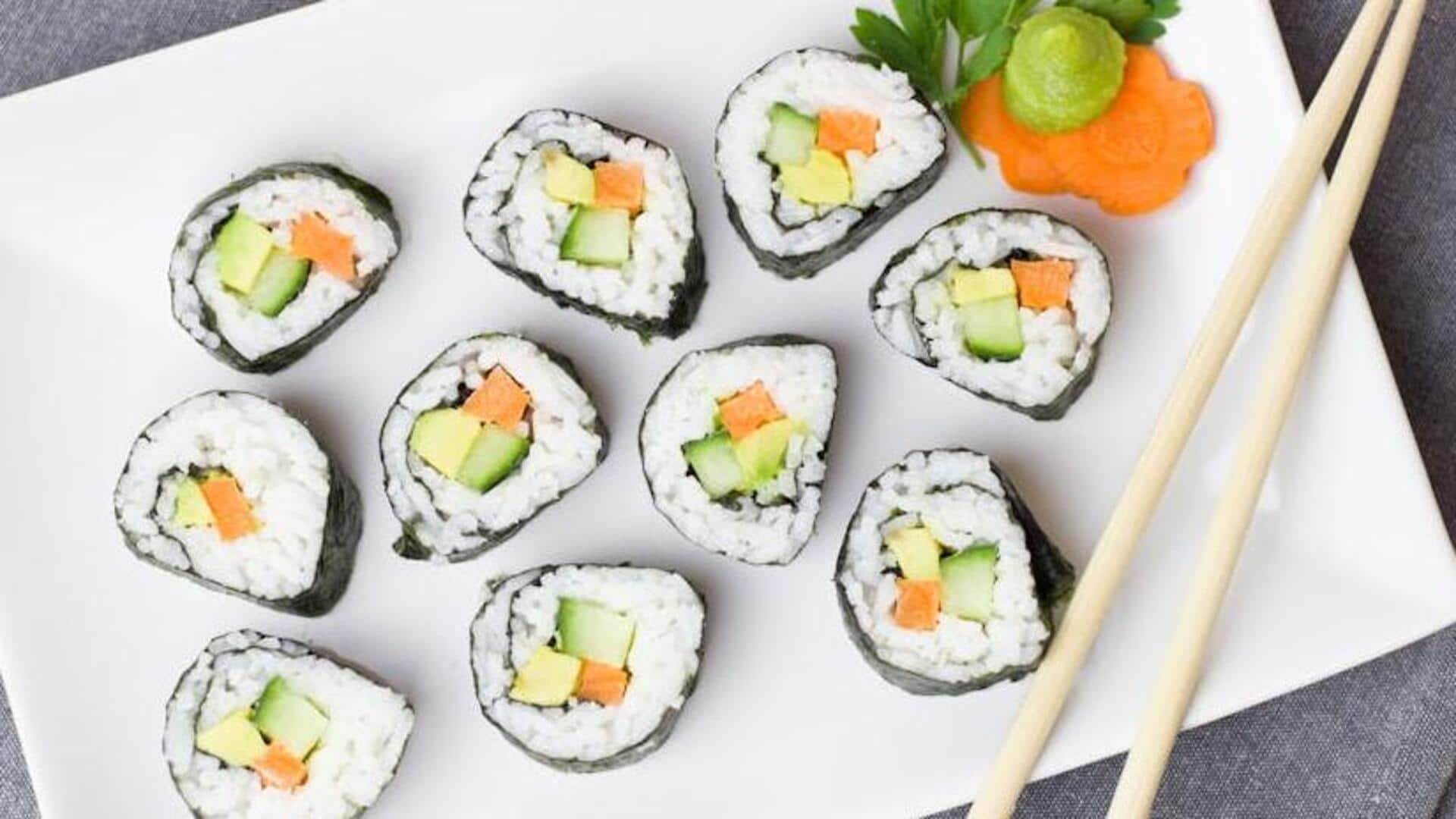
Essential vinegars for perfect sushi rice
What's the story
Making real-deal Japanese sushi rice isn't a one-rice show—it's the vinegar that gives flavor and seasoning.
This article lays out the best vinegars you need in your kitchen if you want to make sushi that tastes like it came straight from Japan.
Knowing the right vinegar to use is the secret to making sushi rice taste just like it does in Japan.
Basics
Rice vinegar: The foundation
Rice vinegar is the cornerstone of genuine sushi rice, with a milder, sweeter profile compared to other vinegars.
This quality makes it perfect for amplifying the rice's inherent flavors without overpowering them.
A suggested ratio for classic sushi rice is approximately 10% vinegar to cooked rice. This ratio subtly seasons each grain, adding to the sushi's overall flavor balance.
Convenience
Seasoned rice vinegar: A shortcut
If you want the easy route without totally ditching authenticity, grab a bottle of seasoned rice vinegar instead.
It's already mixed with sugar and salt, so it's basically a cheat code for tasty sushi rice.
Sure, purists might enjoy seasoning their vinegar, but trust us, this stuff is a major time-saver with a flavor that's just as good. Perfect for beginners!
Variation
Apple cider vinegar: An alternative twist
Although unconventional, apple cider vinegar can be a flavorful substitute for sushi rice if you run out of Japanese vinegars.
Its fruity notes can bring a pleasant twist to your meal.
Keep in mind, though, due to its higher acidity and bolder flavor, it should be used sparingly and adjusted to taste.
Substitution
Red and white wine vinegar: Western substitutes
If you don't have access to genuine Japanese vinegars, you can use diluted red or white wine vinegars (one:one ratio with water) as a substitute for making sushi rice.
These substitutes are stronger and more acidic than Japanese vinegars, so diluting them helps recreate the mild tanginess crucial for sushi rice.
You might need to adjust the sugar and salt quantities to accurately mimic the desired sweetness and seasoning.
Complexity
Mirin: Adding depth
Mirin, a sweet Japanese cooking wine with low alcohol content, is frequently used alongside vinegar to season sushi rice, enhancing its flavor with additional depth and complexity.
While not a vinegar, mirin pairs beautifully with rice vinegar, its sweetness and umami notes balancing the acidity—a secret weapon for many chefs aiming for that uniquely rich yet delicate taste found in authentic Japanese cuisine.